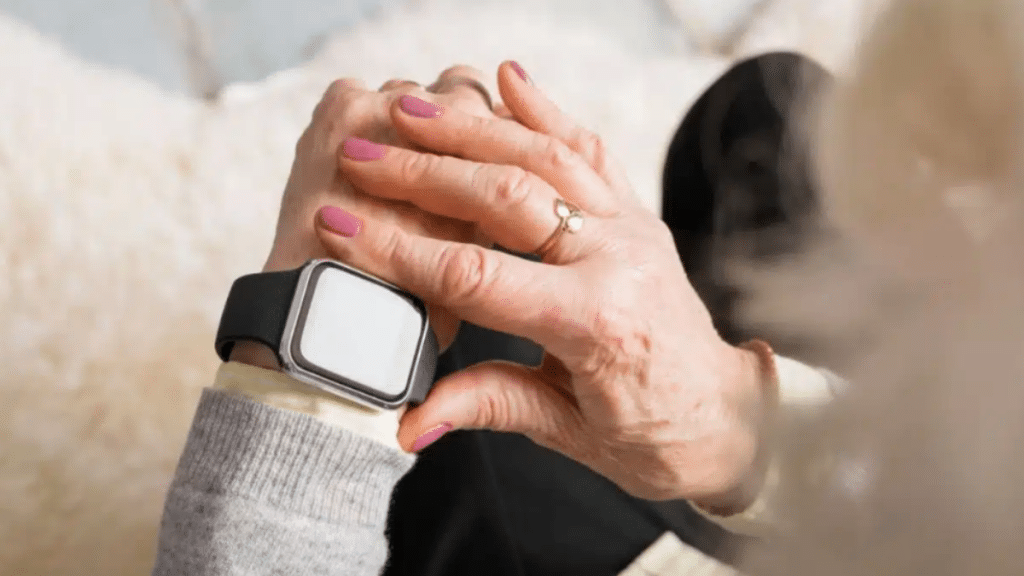As our loved ones age, their safety and well-being become an increasing concern. The introduction of safety devices for seniors has revolutionized elderly care, providing essential tools that foster independence and enhance quality of life. This article explores the types of these devices, their benefits, and factors to consider when choosing the best safety device for seniors.
Understanding the Types of Safety Devices for Seniors
There are several types of safety devices for seniors. Learn more about each below.
Personal Emergency Response Systems (PERS)
These systems are designed to summon help in emergency situations. Equipped with a wearable help button, they allow seniors to alert authorities or caregivers when in distress, making them a crucial element in a senior’s safety net.
Fall Detection Devices
Another vital category includes fall detection devices. These advanced tools employ sensors to recognize when a fall has occurred, sending automatic alerts to designated recipients. In the event of a fall, this can prove lifesaving, especially for seniors living alone.
Mobility Aids
These encompass a range of products from walkers to wheelchairs. The primary role of mobility aids is to assist seniors with physical mobility, reducing the risk of falls and accidents. For seniors with mobility issues, these aids can provide essential support.
Home Safety Devices
From safety rails to non-slip mats, home safety devices ensure that a senior’s living environment is secure. These products reduce common home hazards, making daily activities safer for seniors.
The Benefits of Safety Devices for Seniors
The incorporation of safety devices into a senior’s life can greatly enhance their overall well-being, independence, and security. Let’s delve deeper into the numerous benefits these devices provide:
Enhanced Quality of Life
Safety devices for seniors significantly improve the quality of life for the elderly. For one, they provide a sense of security, which is invaluable. With a Personal Emergency Response System (PERS) or fall detection device, for instance, seniors know that help can be swiftly summoned in case of an emergency. This peace of mind extends not only to the seniors themselves but also to their family members and caregivers, reducing the constant worry about potential accidents or emergencies.
Increased Independence
Independence is a vital aspect of anyone’s life, and seniors are no exception. Safety devices allow the elderly to maintain their autonomy for a longer time. Mobility aids, such as walkers, canes, and wheelchairs, offer the ability to move around independently, reducing reliance on caregivers for everyday tasks. Similarly, devices like PERS provide the confidence for seniors to live on their own, knowing they can easily reach out for help if required. This heightened independence can lead to an improved sense of self-worth and overall life satisfaction.
Prevention of Accidents
Many safety devices are designed to prevent accidents before they happen. Home safety devices, such as grab bars and non-slip mats, can significantly decrease the risk of falls in the home – a common and often severe issue for seniors. Meanwhile, automatic shut-off devices for stoves or irons can prevent potential fires, adding an additional layer of safety.
Improved Health Monitoring
Some safety devices for seniors also offer health monitoring features. These devices can track vital signs, remind seniors to take their medications, or alert caregivers to potential health concerns. This constant monitoring can lead to earlier detection of health issues, potentially preventing serious complications down the line.
Considerations for Implementing Safety Devices
While safety devices provide numerous benefits, it’s crucial to choose the right ones based on individual needs, living arrangements, and budget. Here are some factors to consider:
Assessing Individual Needs
Understanding the health condition, physical abilities, and cognitive capabilities of a senior is paramount when choosing a safety device. A device that requires complex operations might not be suitable for a senior with cognitive issues. Similarly, a mobility aid needs to be chosen based on the physical strength and balance abilities of the senior. The device should align with their abilities and needs to ensure they can use it effectively when required.
Evaluating Living Arrangements
The senior’s living situation significantly impacts the selection of safety devices. If a senior lives alone, devices like PERS or fall detection devices become even more critical. For those living with family, other devices may take precedence. The structure and accessibility of the home should also be considered. Stairs, for instance, might necessitate stairlifts or additional handrails.
Budget Considerations
While ensuring the best possible care for seniors is essential, budget considerations play a significant role. The costs associated with safety devices can vary widely. Understanding upfront costs and maintenance or subscription fees associated with these devices is crucial. Additionally, one should explore possibilities for insurance coverage and other funding opportunities, such as grants or subsidies for seniors, to help manage these costs.
Comfort and Ease of Use
The comfort and ease of use of the safety device are important considerations. Seniors are more likely to use devices that fit comfortably and can be operated easily. A device that is uncomfortable or overly complicated can lead to non-compliance and compromise safety.
Safety devices for seniors are an invaluable component of modern elderly care. From PERS to mobility aids, these tools serve to safeguard seniors, enhance their quality of life, and foster independence. By carefully considering the individual’s needs, living situation, and budget, caregivers and family members can select the most suitable safety device for their loved ones. Remember, the goal is not just to provide care, but to empower our seniors, ensuring their golden years are as comfortable, safe, and fulfilling as possible.
Angela Spearman is a journalist at EzineMark who enjoys writing about the latest trending technology and business news.
